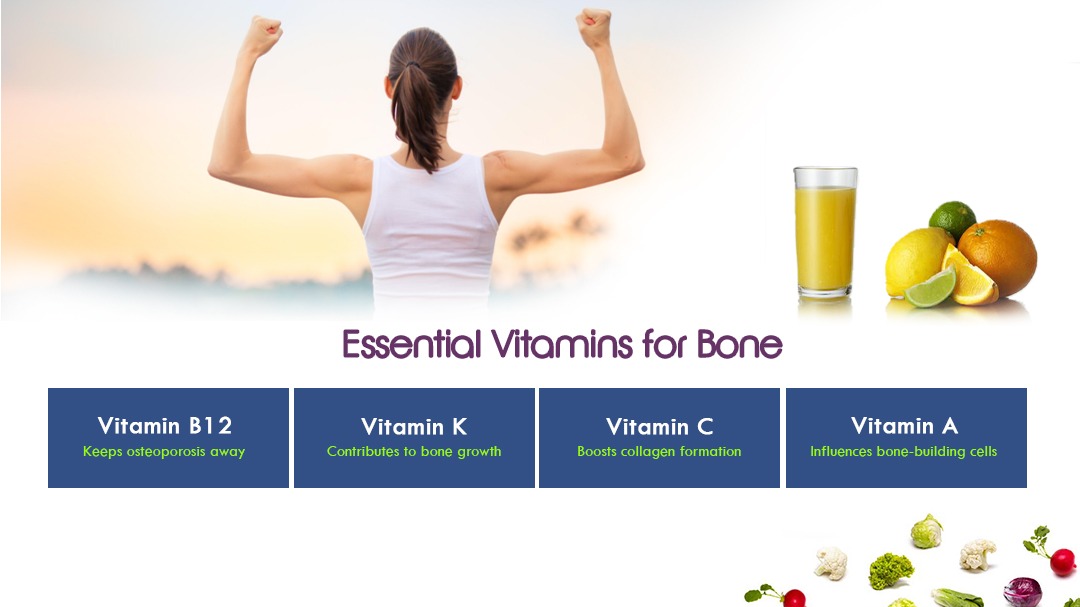Food makes a great contribution to your bone health. In the last blog, we discussed the essential nutrients required for strong bones, such as calcium, vitamin D, protein, and omega-3 fatty acids.
Along with vitamin D, there are other essential vitamins that you should include in your diet for improved bone and muscle health. Let’s talk about those vitamins today!
Vitamin A
Vitamin A is a crucial element in building healthy and strong bones for its fat-solubility characteristic. Vitamin A influences both bone-building cells called osteoblasts and bone-breaking cells called osteoclasts.
Retinol is the main source of vitamin A, found in fortified cereals, meat, fish, and some vitamin supplements. As the vitamin is stored in livers, consuming the liver of fish and other animals makes for the required amount of vitamin A in your body. Coming to another source of Vit A, beta-carotene is found in orange fruits and dark green vegetables.
However, extremely high levels of vitamin A is also linked with fractures and reduced bone density. So, keep a check on the total intake and ensure you take a healthy balanced diet. You can include foods like sweet potatoes, spinach, fatty fish, cheese pizza, carrots, kales, liver, fat-free milk, cantaloupe, and mangoes in moderation to consume vitamin A.
Vitamin C
Another essential vitamin for bone health is Vitamin C. It boosts collagen formation – the base on which bone mineralization is built. High vitamin C levels are responsible for higher bone density. It is a water-soluble vitamin and people having poor absorption tendencies have low levels of the vitamin.
To ensure you have the required levels of vitamin C for better bone health, include foods like bell pepper, broccoli, kale, oranges, strawberries, papaya, cauliflower, and lemons in your daily diet. If you are a smoker, your intestines fail to absorb vitamin C normally, thus leading to lower levels of the vitamin in the blood.
And, yet another valid reason to stop smoking!
Vitamin B12
Vitamin B12 shows effective results on bone-building cells. If your body is low on vitamin B12, it may increase the risk of osteoporosis in both women and men. The best sources of vitamin B12 are foods like eggs, fish, poultry, milk, meat, fortified cereals, etc.
With growing age or gastrointestinal disorders, people fail to absorb iron and B12. In such cases, orthopedists recommend B12 injections that bypass their digestive tract and provides the required benefits. Insufficient vitamin B12 levels in the body may lead to bone loss.
Vitamin K
Vitamin K contributes to bone growth and development as it helps calcium reach your bones. Low levels of vitamin K in the blood are an implication of lower bone density and increased risk of fractures. You can consume vitamin K in various foods that we have every day. However, doctors forbid people on blood thinners from consuming vitamin K.
The best sources of vitamin K include brussels sprouts, cabbage, kale, spinach, raw parsley, cooked broccoli, olive oil, canola oil, and swiss chard.
In a Nutshell
Vitamins constitute a major role in building strong and healthy bones. Now that you are aware of all the nutrients and vitamins essential for bone health, ensure you consume the right foods in the right quantities.
